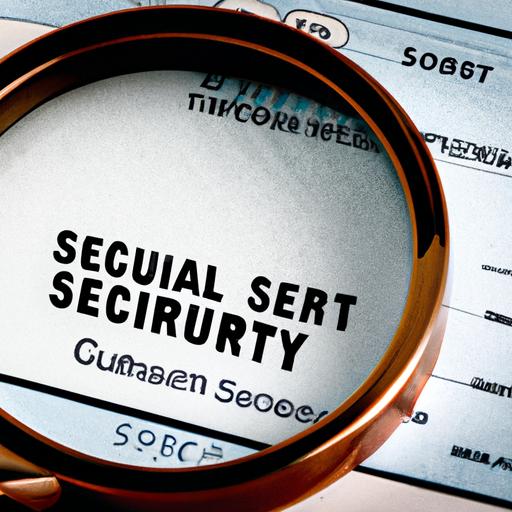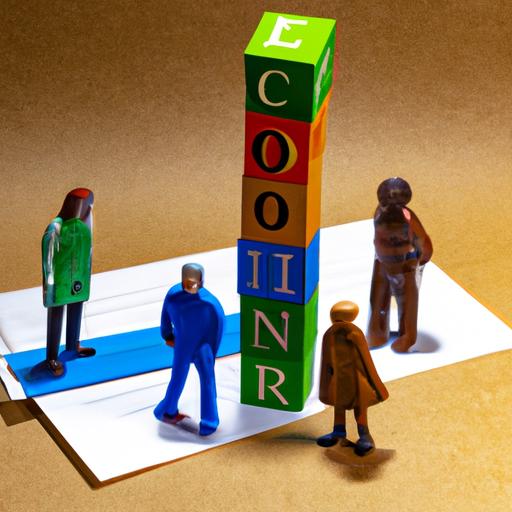Introduction
Have you ever wondered how we develop our social skills and behaviors? How do we learn to navigate the complexities of society? The answer lies in the presence of socializing agents – those influential factors that shape our social development. In this article, we will delve into the concept of socializing agents and understand their significance in our lives.
Definition of Socializing Agents
Socializing agents refer to the various entities and institutions that play a crucial role in transmitting societal norms, values, and behaviors to individuals. These agents act as powerful forces that shape our understanding of social interactions, influencing the way we think, behave, and form relationships. They are instrumental in enabling us to become active participants within our communities.
Importance of Socializing Agents in Society
Socializing agents are vital in fostering healthy social development among individuals. They provide the necessary guidance, support, and exposure that allow us to adapt and thrive in different social contexts. Without the influence of these agents, our socialization process would be incomplete, hindering our ability to form meaningful connections and navigate society effectively.
From the moment we are born, our socialization begins within the family unit. Let’s explore further in the next section how the family acts as a significant socializing agent in our lives. Stay tuned!
Family as a Socializing Agent
Role of Family in Socialization
When it comes to socialization, the family unit takes center stage as one of the most influential socializing agents in our lives. From the earliest stages of our development, our families provide the foundation for learning social norms, values, and behaviors. They act as our first teachers, guiding us through the complexities of social interactions.
Within the family, we acquire essential life skills such as communication, empathy, and cooperation. We observe and imitate our parents and siblings, learning how to navigate relationships, resolve conflicts, and express emotions. Through daily interactions and shared experiences, our families shape our understanding of societal expectations and teach us the values that will guide our behavior throughout life.
Impact of Family on Social Development
The impact of the family as a socializing agent is profound and long-lasting. It sets the stage for our future interactions and relationships, shaping our ability to form bonds with others. Positive family dynamics, characterized by warmth, support, and healthy communication, foster a sense of security and belonging, providing a solid foundation for social development.
On the other hand, negative family environments can hinder social development and contribute to maladaptive behaviors. Exposure to conflict, neglect, or abuse within the family can result in difficulties in forming trusting relationships and understanding healthy boundaries. These experiences can have long-term consequences on an individual’s social well-being.
In conclusion, the family plays a crucial role as a socializing agent in our lives. It lays the groundwork for our social development, teaching us the skills and values necessary to navigate society. The next section will explore another significant socializing agent – education. Let’s delve into it to gain a deeper understanding. Stay tuned!
Education as a Socializing Agent
Education, beyond its academic value, serves as a critical socializing agent in our lives. It plays a pivotal role in shaping our social behavior, values, and beliefs. Let’s explore the multifaceted aspects of education as a socializing agent.
Role of Education in Socialization
Education acts as a bridge between individuals and society, equipping us with the necessary skills and knowledge to function effectively within a social framework. It provides a structured environment where we not only acquire academic knowledge but also learn important social skills such as communication, teamwork, and problem-solving.
Schools and educational institutions serve as microcosms of society, offering students the opportunity to interact with peers from diverse backgrounds. Through classroom discussions, group activities, and extracurricular engagements, education fosters social integration, helping individuals develop empathy, tolerance, and respect for others.
Influence of Education on Social Behavior
Education has a profound impact on our social behavior and interactions. It helps shape our values, attitudes, and moral compass, guiding us to become responsible members of society. By imparting knowledge about ethical principles, social norms, and cultural diversity, education instills a sense of social responsibility and encourages us to participate in collective efforts for the betterment of society.
Moreover, education also influences our perception of social roles and expectations. It introduces us to various career options, societal roles, and responsibilities, enabling us to make informed decisions about our future and contribute meaningfully to society.
Through education, we acquire the necessary social skills to navigate social situations, communicate effectively, and build strong interpersonal relationships. These skills enhance our ability to understand and connect with others, fostering a sense of social cohesion and harmony.
In the next section, we will explore the influence of peer groups as socializing agents. Join me as we unravel the power of peer influence in shaping our social identities!
Peer Groups as Socializing Agents
Peer groups, consisting of individuals of similar age, interests, and social status, have a tremendous impact on our social development. Let’s explore the significance of peer groups in socialization and understand how they shape our individual social identities.
Significance of Peer Groups in Socialization
Peer groups serve as an essential socializing agent, particularly during adolescence when individuals seek to establish their identity and gain acceptance within their peer circle. These groups provide a platform for individuals to engage in shared experiences, develop social skills, and learn societal norms and values through interactions with their peers. By observing and imitating behaviors, individuals acquire a sense of belonging and understanding within their social environment.
Peer groups offer a unique space where individuals can experiment, make mistakes, and learn from one another. They provide opportunities for personal growth, as individuals navigate friendships, conflicts, and dynamics within these groups. Moreover, peer groups offer emotional support, fostering a sense of camaraderie and acceptance that is crucial for social development.
Impact of Peer Groups on Individual’s Social Identity
Our social identity, the way we perceive ourselves in relation to others, is significantly influenced by our interactions within peer groups. These groups shape our beliefs, attitudes, and behaviors, ultimately contributing to the formation of our social identity. Through peer interactions, individuals learn about social roles, expectations, and cultural practices, which help them define their own identity within the broader societal context.
Peer groups can both positively and negatively impact an individual’s social identity. Positive peer groups can foster self-esteem, empathy, and positive social behaviors. Conversely, negative peer groups may influence individuals to engage in risky behaviors or adopt negative attitudes. Therefore, the influence of peer groups on social identity underscores the importance of surrounding oneself with supportive and positive peer circles.
In the next section, we will explore how media acts as a socializing agent and shapes our social behavior and beliefs. Let’s dive in!
Media as a Socializing Agent
In today’s interconnected world, the influence of media as a socializing agent cannot be underestimated. From television shows and movies to social media platforms and news outlets, media plays a pivotal role in shaping our social behavior and beliefs. Let’s explore the role of media in socialization and the effects it has on individuals.
Role of Media in Socialization
Media acts as a powerful tool for socialization, as it exposes individuals to a wide range of social norms, values, and behaviors. Through various forms of media, we are exposed to different cultures, ideologies, and perspectives, expanding our understanding of the world around us. Media narratives and representations also contribute to shaping our perception of social roles and identities.
Media platforms, such as television and movies, often depict idealized versions of relationships, beauty standards, and lifestyles. These portrayals can influence our aspirations, self-image, and even our expectations of others. Additionally, media plays a significant role in disseminating information and shaping public opinion on social and political issues, further impacting our socialization.
Effects of Media on Social Behavior and Beliefs
The influence of media on social behavior and beliefs is profound. Studies have shown that exposure to violent or aggressive content in media can lead to increased aggression in individuals, particularly in children and adolescents. Similarly, the portrayal of certain stereotypes in media can perpetuate biases and prejudice, shaping our attitudes towards different social groups.
Moreover, media platforms have the power to shape our beliefs and influence our decision-making processes. Advertisements, for example, can create desires and preferences, impacting our consumer behavior and lifestyle choices. Social media, with its ability to connect individuals from diverse backgrounds, can shape our social interactions, self-expression, and even our perception of self-worth.
In conclusion, media acts as a significant socializing agent, shaping our social behavior, beliefs, and identities. By understanding its role and effects, we can be more mindful of the media we consume and actively engage in critical thinking to navigate its influence. Now, let’s move on to the conclusion and recap the importance of socializing agents in our lives.
Conclusion
In conclusion, socializing agents play a pivotal role in shaping our social development. From the family unit to education, peer groups, and the media, these agents exert their influence on our beliefs, values, behaviors, and overall social identity. They provide the necessary guidance, support, and exposure that allow us to become active participants in society.
Understanding the impact of socializing agents is crucial as it enables us to recognize and appreciate the multifaceted factors that contribute to our socialization. By acknowledging the influence of these agents, we can make informed choices regarding the values and behaviors we adopt, ensuring a healthy and well-rounded social development.
So, the next time you find yourself pondering the reasons behind your social skills and behaviors, remember the powerful role that socializing agents have played in shaping your journey. Embrace the positive influences and strive to surround yourself with agents that foster growth, understanding, and empathy.
Now that we have explored the concept of socializing agents and their significance in our lives, it’s time for you to reflect on your own experiences. How have these agents shaped your social development? Are there any aspects you would like to improve or change? By understanding the impact of socialization, we can actively work towards becoming better individuals, fostering harmonious relationships, and creating a more inclusive society.
Remember, we are not alone in our socialization journey. Socializing agents are there to guide, influence, and shape us. Embrace the power of these agents and let them pave the way towards a brighter, more socially aware future.



